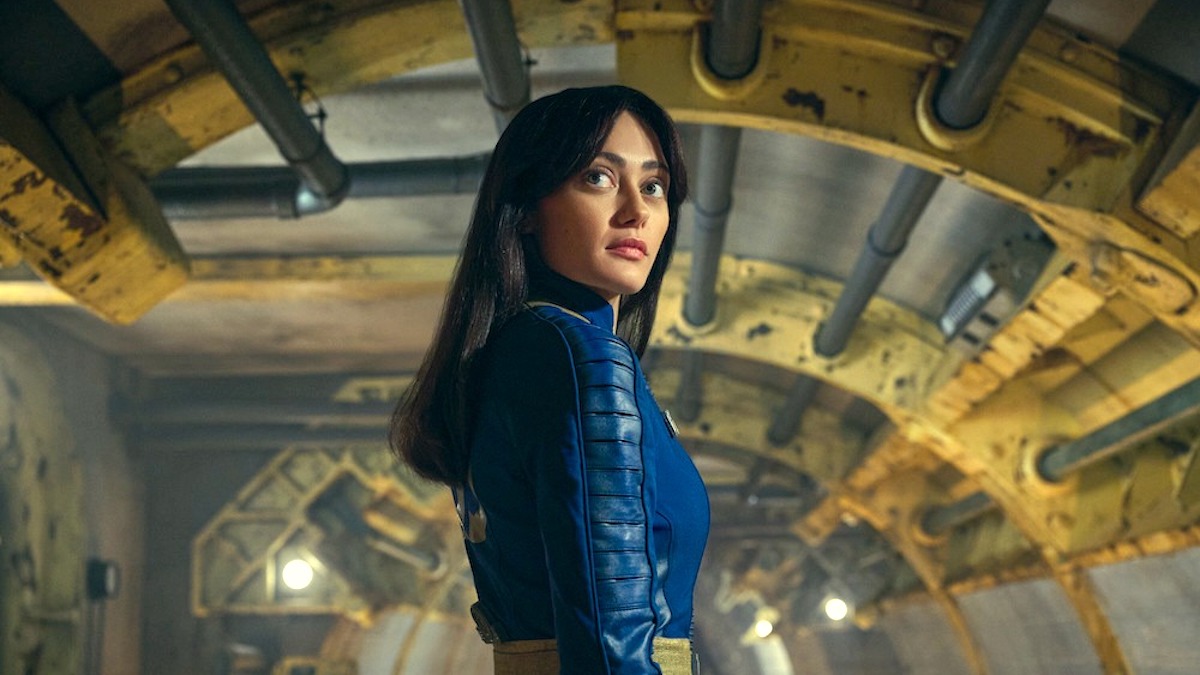‘Fallout’ Showrunners on Vibes, Weirdos, and the Show’s ‘Relationship Between Morality and Privilege’

Prime Video dropped Fallout‘s entire 8-episode first season like a bingeable atom bomb on April 10. After chatting with Fallout stars Ella Purnell and Aaron Moten, and Executive Producer Jonathan Nolan and star Michael Emerson, I had the chance to sit down with series showrunners Geneva Robertson-Dworet and Graham Wagner.
Like Nolan, Wagner and Robertson-Dworet were already fans of games in the Fallout series when they started work on the show. So I was curious about what, if anything, from their personal gameplay or interests in the games found their way into the show.
“A lot of it, for us, was sort of the vibe of Fallout,” Wagner explains. “Like, you can blur your eyes and go ‘That’s Fallout!’ It’s just sort of a feeling you get. That was there in the scripts. That was there in our production meetings, in our concept designs from [Production Designer] Howard Cummings. That was important to all of it.”
As for personal gameplay experiences, these only reminded Wagner that in order to adapt the world of Fallout into a narrative series, the better storytelling move would be to create completely new characters rather than try to recreate the experiences of his player characters.
“My first playthrough of Fallout 4, I accidentally killed my own son,” Wagner admits. (For those who don’t know, finding your missing son is the main quest of Fallout 4) “And I hadn’t saved a game in quite some time, and I’d done a fair bit of collecting of things, so I was unwilling to go back and do all that work over again. So, that was my gameplay! And we had a lot of conversations about that, like, there’s no adapting ‘the story of Fallout,’ because that’s my experience, that’s not your experience, and so on. The sheer subjectivity of the actual story. That helped us abandon the idea very early of adapting a single Fallout game, and instead just doing something new.”
In addition to the oft-talked-about unique tone of Fallout, Robertson-Dworet wanted to capture the themes explored in the game through its unique moral dilemmas. She cites the many factions in the Fallout games and how they’re often in opposition, so if you help one, you’re invariably hurting another.
“We hope that we brought a bit of that sense of morality play to our show,” Robertson-Dworet says. “Because I think it was one of the things that we found most interesting. And certainly we always thought of Lucy as a character whose whole journey is that she feels self-righteous because she comes from a place where everybody’s good and then she goes to the Wasteland and she realizes Oh my God, people here are violent because they don’t have it as good as I did back home. So a lot of what the show, we hope, deals with thematically is kind of the relationship between morality and privilege.”
Robertson-Dworet hopes to offer viewers who might not be familiar with the Fallout games the same sense of freshness and newness that she experienced when she first played the games.
“I hope what comes across is what I think struck me as so incredibly fresh when I first played the game, which is that mix of tones,” she enthuses. “Fallout is a pastiche, but it pulls it off, right? It’s B Movies, it’s weird comedy, it’s insane robots, it’s those incredible moral dilemmas, it’s really out-there violence. I hope that viewers feel like they’re seeing something new when they’re seeing that for the first time, because I know I felt like it was really fresh and new even though the games had been going for 25 years when I played the games.”
Wagner puts a surprisingly hopeful spin on what he hopes viewers take away from the show. In watching Fallout, he hopes viewers will see themselves and be reminded that human beings are indomitable. “Should bombs start falling, I don’t think that’s the end of funny business,” Wagner says. “I think people’ll still be weird and idiosyncratic. I think that’s something that’s actually just true of human nature. As long as we’re around, there are gonna be weirdos, and we’re gonna break into societies that don’t make sense entirely…all that stuff. Should the end come, I don’t think it’s gonna actually be the end. It’ll just be the start of something new and weird.”
Here’s to new and weird! Check out the full interview with Wagner and Robertson-Dworet over at the TMS YouTube channel:
(featured image: JoJo Whilden / Prime Video)
Have a tip we should know? tips@themarysue.com